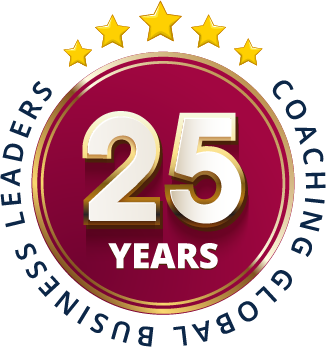

Client
Case Studies
Navigating through the storm
In a world marred by unpredictable geopolitics, economic fluctuations, and technological disruptions, leaders are constantly facing unprecedented challenges.
Here’s how we have helped some of our clients in a wide range of scenarios:
In age and length of service, Ernst was the most junior of a large and long-established tech company’s Executive Committee in Northern Europe. He led the Innovation and Development function, but he had only been in the company for a few years, while his peers typically had served the corporation for twenty-five years.
When the chief executive announced his retirement, expectations were high that one of those would be elevated. However, Ernst confessed to one of our team, a former CEO in a computer company, that he would love to be considered. Together, they embarked on an intensive short programme to convince the Board Nominations Committee, in competition with his peers and outside candidates.
Learning how to respond to the Non-Com’s searching questions and acquiring fast-track gravitas, Ernst won the nomination, then continued partnering with his coach and the Board Chair to prepare to step up to the CEO role. Ernst’s first year as CEO has ended with record business results and a highly positive Employee Engagement Survey.
Elena, in her mid-40’s, was a high-performing EMEA business leader in a US-based manufacturing corporation. At short notice, the regional president retired, and, in the American way, her boss asked her to take over that role in parallel with her current job.
She was ‘lucky,’ because her two bosses only demanded 75% of her time, each. Overwhelmed with competing priorities and with no real framework to copy, Elena asked one of our coaches, a former regional leader and chief executive, to be her mentor, coach and advisor.
Together, they devised a Transition Team structure to earn the commitment of key players in her new region and created a persuasive vision for the demoralised regional workforce. Elena was sometimes stressed, often excited, and always overworked, but she was so successful that she was headhunted for a vice-president role in another business. She has just been asked to expand her remit as preparation for the CEO role. Her coach, long known for his CEO-creation successes, has stayed with Elena as her career progresses.
Jim Wong was a successful business leader in APAC and was ready for a bigger job. With his traditional Chinese upbringing, Jim was somewhat reticent in interactions with his US-based colleagues. When the regional president’s role became vacant, the corporation appointed a more outgoing westerner over Jim’s head. Jim was disappointed but he embarked on a coaching programme with one of our team, a European who had been a CEO in China. With his deep understanding of two divergent cultures, Jim’s coach helped him to express himself more confidently in the wider corporation, and to win the attention of the global President. Jim was later promoted and is now a contender for the CEO role of the entire group.
John has risen fast in his $50 billion global group through his massive intellect and business acumen. He finds himself on the Executive Board at age 43, where his peers are significantly older and more experienced. He has been nominated as a candidate for the Group CEO role in two years’ time.
Our coach is passing on his own CEO experience so that John can work effectively with his EB colleagues and lead his division in a rapid expansion of its business. When the time comes, John will have proved himself as a leader of a major business and will have all the attributes he needs to compete for the top job.
Frank was an energetic CFO with a big vision for his global corporation but his rather cautious Executive Chairman was standing in the way. Frank wanted the CEO job and to get Board approval for his ambitious strategies.
His coach led Frank though a range of scenarios to achieve his objectives without upsetting his Chairman. The coach, a former Chief Executive in Europe and Asia, also helped Frank learn the CEO skills he needed for success.
Some months later, the Chairman stepped down and Frank was promoted. His strategies soon led to a bigger and brighter future for his corporation. The group has doubled its revenues and profits in the last three years.
Claire was the smartest VP in a well-known airline. She was young, ambitious and female in an old-fashioned macho company. She was clearly going places – most likely to the competition!
Claire embarked on an I.J Martin & Co executive coaching programme for HI-POs. Her coach passed on his experience of business and his wisdom on succeeding in a male-dominated culture.
Within a few months, Claire had earned all-round respect and her ideas for growth were being approved by the Board. A few months later, she was promoted to CEO of the biggest division in the group.
Dave had been a highly-successful business leader around the world for his Fortune 100 US Corporation. Promoted to the Group Executive Committee back in USA, he was disruptive in the top team and resented by his colleagues. His long career was under threat.
Feedback interviews said that he was preaching to his less-travelled peers. Their resentment created a ‘downward spiral’ in Top Team relationships.
During feedback interviews, the coach asked Dave’s peers to understand that he was only trying to help by passing on his overseas experience and to change their perceptions of his motives. Discussion with Dave revealed that his intentions were good but his style was wrong. Dave tried other ways with his colleagues, who by now were trying to appreciate his efforts.
Within weeks, the relationship had turned positive and Dave was promoted again to an even bigger regional role.
Barbara was a successful but over-ambitious executive in Europe. Her self-promoting behaviour in meetings was harmful to her ambitions and caused resentment with Steve, a US-based colleague, in particular.
However, his feedback in interview was well-considered and balanced. The coach mentioned in passing that Barbara valued a number of things about Steve, which surprised and pleased him. In reviewing feedback with Barbara back in Europe, the coach described Steve’s feedback as being especially high-quality and suggested that she ask him to monitor her behaviour in future meetings.
Barbara and Steve will never be best friends, but their working relationship is now highly-productive and Barbara finally got promoted to the global leadership role that she wanted.
Robert was the CEO of a high-profile investment bank in Germany. His HQ bosses in New York said that he had a serious ‘time management’ problem and he was not meeting with potential clients often enough. They were close to firing him for non-performance.
When his coach discussed his background with him, he revealed a deep-seated inferiority complex stemming from his early schooldays. As a result, Robert had not engaged a strong deputy or a strong team to support him, in case they proved to be threats.
In discussion with his coach, he realised that this was all in the past. His self-confidence grew rapidly in the days afterwards. He then hired a good deputy and recruited a strong team to take care of office matters and spent far more time getting new business.
The bank was very happy with the new business and relieved that they did not have to fire him. Robert was promoted twice in the next three years.
Sandra is the young Chief Executive of a $ 1 billion Austrian company where most of the managers are male, much older and very set in their ways. She was finding it hard to be effective in the top job.
She is intelligent but lacks leadership experience and feels isolated in the Chief Executive role. She knows the right thing to do in most situations but lacks the self-confidence to persuade her reluctant deputies to accept her decisions.
Sandra uses her mentor to discuss complex situations involving business and interpersonal issues. Her mentor stimulates wider thinking on the issues and helps her see the other side of the arguments. Together, they plan ways to introduce Sandra’s ideas, absorb useful inputs from others and sell the proposals to her management team.
Sandra’s judgement and confidence have grown to the point where her mentor can soon retreat into ‘emergency access’ mode for major crises.
Bill is a highly-intelligent business leader of a successful $2 billion business within a global group. He knows his markets in detail and is close to his customers. However, he was impatient with his direct reports and over-competitive with his group peers.
Feedback showed that he was thinking too fast for others, not listening to opposing views and not allowing time for useful debate. His peers reacted to his style by withholding information and refusing to collaborate. Bill was thus denied the chance to compete effectively in his global markets.
His coach helped Bill to slow down and listen to valuable input from others. He now reaches out to peers for ‘win-win’ solutions to business issues.
As a result, Bill’s business is now even more successful, the group is gaining market share and his next promotion is being considered.
Steven was highly-ambitious and wanted the Group CEO role but it was very unlikely that he would succeed. His impatience was increasingly proving to be disruptive to this US Fortune 50 corporation.
Some direct feedback on his behaviour and coaching thereon arrested a growing problem with his peers and direct reports. With the company’s agreement, coaching then focussed on helping Steven learn the skills necessary to market himself outside the group. He became adept at building his external networks, presenting himself effectively and managing job interviews.
Within a few months, Steven had secured an attractive offer to be CEO of a smaller, but still significant, company where he is now enjoying life and consistently beating his budget numbers.
Lee is the young and ambitious Chairman and Chief Executive of a $1 billion Asian group. His products are innovative, with potential for major growth in global markets.
However, Lee is inexperienced in doing business outside of Asia and has limited knowledge of finance, marketing and other business skills outside his technology.
Working with I.J. Martin & Co coaches in Asia, Europe and USA, Lee is learning the finer points of international finance, marketing strategy and cross-border leadership. He is fast acquiring experience on the ways in which business is conducted in USA and Europe.
Lee has taken his first steps towards being a global CEO by appointing a Swiss director to his Board and is negotiating to buy a US company that will add significantly to his company’s market reach.
Call now on +41 44 260 16 00
for a private, no-commitment discussion.
If you prefer, email us at welcome@ijmartin.com or use our contact form.

